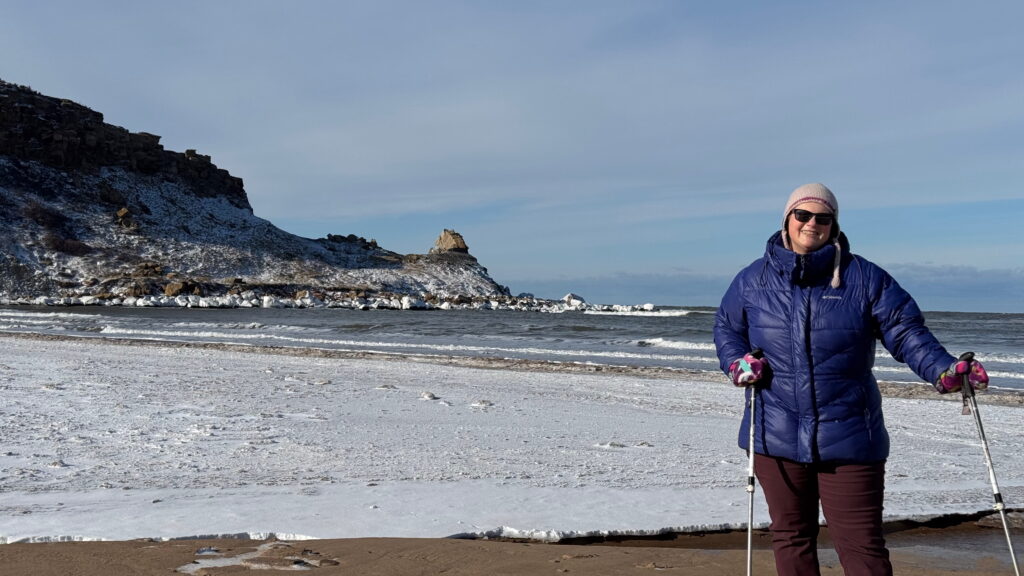Last weekend I did my first solo road trip. I drove down to Pasadena to attend the celiac disease foundation annual conference and expo. I had thought it was going to be a 4-5 hour drive, which unfortunately turned out to be more like a 6-7 hour drive. The good news is that I did it! I drove down to Pasadena on Friday in time for dinner, and returned on Saturday – actually, I got about 1/2 way home and spent the night in a hotel in a small town along highway 5. I was home before noon on Sunday (and back to renovating).
I was drawn to the conference and expo because I wanted to learn more about celiac disease. I wanted to hear about the latest research. I was also really curious what I would find at the gluten-free expo. I attended the conference as an official Celiac Disease Foundation (CDF) patient advocate. I wasn’t exactly sure what this meant, and had hoped to get some training about how to advocate for policy changes and research. I was also hoping to meet some new people. I wanted to hear about the different things other patient advocates where doing.
The conference itself was full of good presentations, unfortunately it was too full of presentations. The conference started out at 8:30 after a full buffet breakfast (gluten-free of course!). The first speaker and Q&A ran past 10am, when were allow into the expo before the general public. I ended up sneaking out during Q&A (as did many others) in order to get enough time in at the expo. I rushed through sampling a bunch of different things, and unfortunately ran out of time. I didn’t get to see the entire export. Presentations started up again at 11am and literally continued through to 4pm with a continuous stream of speakers. There was not even a bio break! Lunch was served while the dietician spoke about gluten-free diets. What this meant was that there was no time for conversation, and no chance to meet new people.
On the drive home I was a little grumpy about the whole thing. I didn’t find that the speakers added to my knowledge. I got a few small nuggets of new information, but for the most part it was stuff that I already knew. There was nothing about advocacy. It was all about different aspects of celiac disease. Since we didn’t get time to talk to each other, I felt like I could have read the information or watched online videos. I didn’t need to drive all the way to Pasadena. I felt kind of bad for those that travelled further to attend.
One of the nuggets of information I did learn was around the topic of gluten-free diets. From the days of our bike trip, I knew that I needed to eat more protein than Scott, but also that I had trouble getting enough protein/iron from vegetables. Scott could easily eat vegetarian all the time. Whenever I tried, I starved. It just didn’t work for me. One of the things I learned was that the celiac diet (strict gluten-free) is typically low on iron, fibre, and B vitamins. Those with celiac disease also often suffer from deficiencies in micronutrients (in my case zinc). This is in part because most gluten-free foods are not fortified. The low iron explains why if I don’t eat red meat for a week I find myself hungry and tired. I feel the lack of iron in my gluten-free diet.
The gluten-free expo had a lot of different foods to sample. I did find a few good ones (a great pizza, and some excellent dumplings). One of the challenges was that the expo had mostly gluten-free junk food. I would like to have seen more educational booths at the expo – ones where people where demonstrating gluten-free healthy alternatives that were not pre-packaged goods. It would have been nice to have vendors interspersed with educational booths. Perhaps I’m asking too much!
I do wish I had learned more about advocacy. One of the things that occurred to me during the conference was that the new patient advocated needed to learn more about research processes. Our role is supposed to be to provide patient voice into research projects. We were funded by a federal grant to support PCOR (Patient-Centered Outcomes Research). I don’t believe it is possible for patients to be heard by researchers, if the patients don’t understand the language of research. Patient advocates need to learn the basics of scientific and health research in order to effectively give voice to patients throughout the research process.
Do you think patient advocates need more training in research methodologies?


Leave a Reply